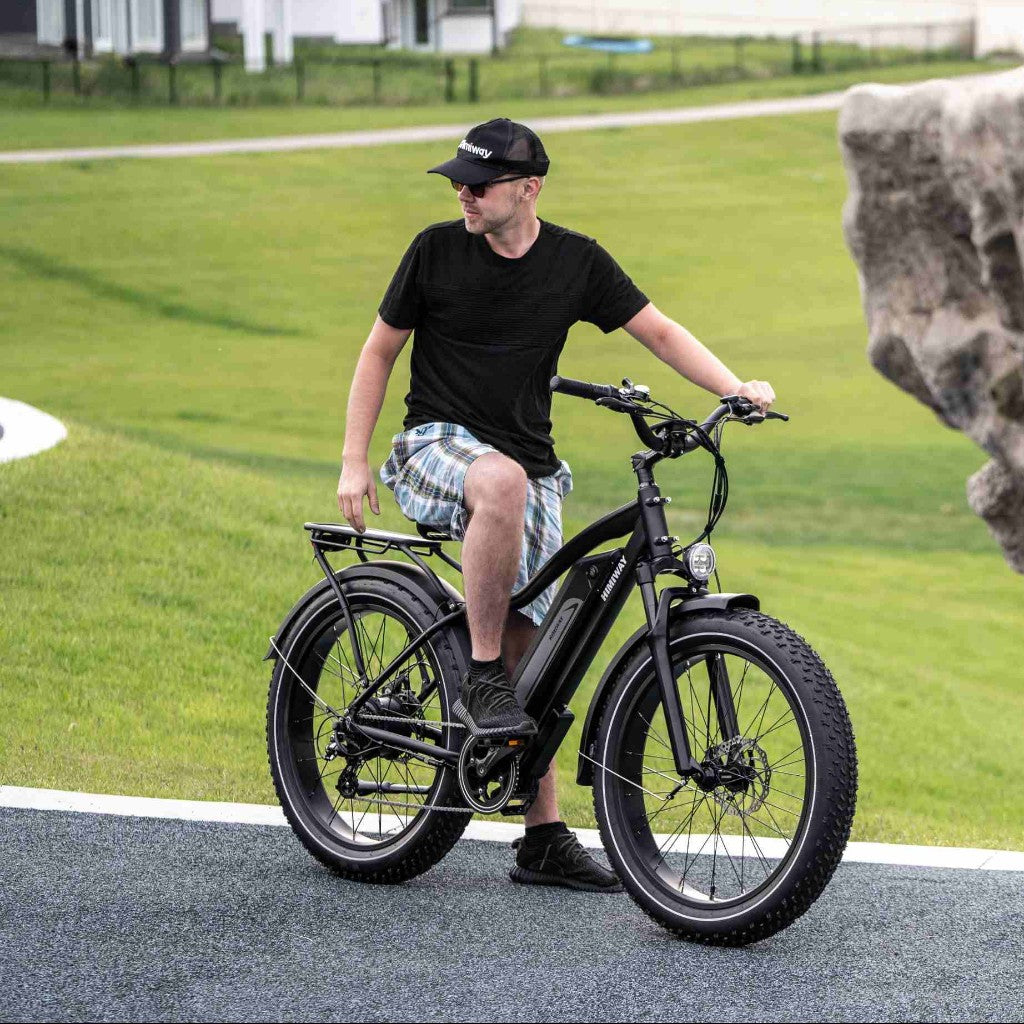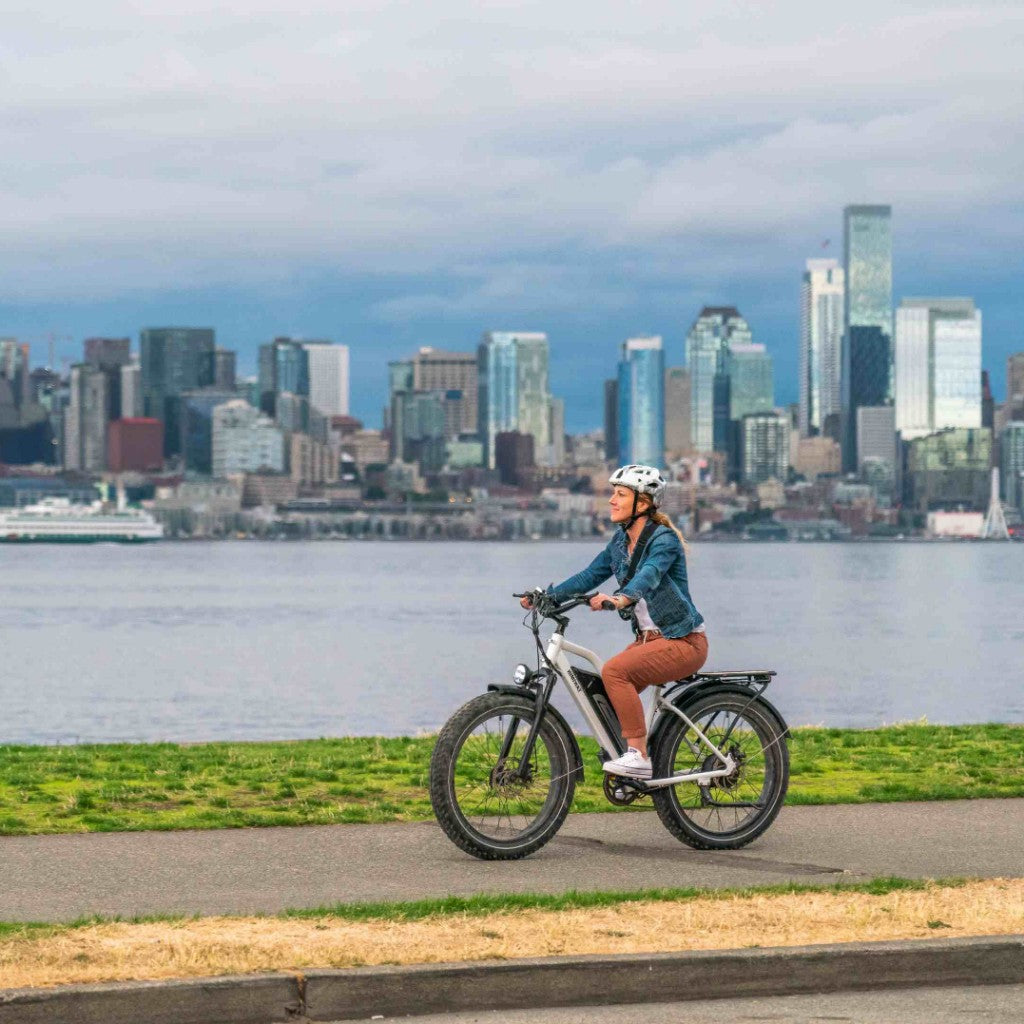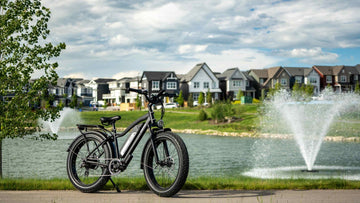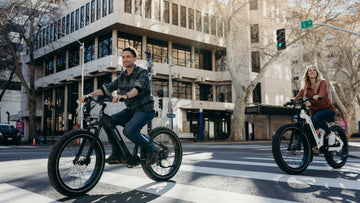Electric bikes are an excellent alternative means of transportation; besides this, they provide several other benefits to riders. These benefits are the main drivers for the increasing demand for different electric assist bikes or ebikes in most cities. The bike's convenience is second to none, coupled with how easy the electric bike is to navigate, and this makes the ebike even more pleasing to ride.

Electric bikes are built differently than regular bicycles because they come with an electric motor and battery that assist you in pedaling. This feature is distinct as it makes climbing a hill and conquering rough terrains easier. However, different countries have different laws that apply to ebiking. Therefore, to ride an electric bike, you need to know the laws and regulations riding guiding and everything you need to know about ebikes in your residence country. For instance, a rule could apply to safety riding, bicycle speed, maximum speed, etc.
This article answers the question of the legality of electric bikes in the UK. Also, it provides the rules and regulations guiding the riding of an electric bike in the UK.
Are electric bikes legal in the United Kingdom?
The use of electric bikes is legal in the UK as long the rider is over 14 years and the electric bicycle meets the ebike laws and regulations. Most e-bikes in the UK are known as Electrically Assisted Pedal Cycles' (EAPCs). However, there are criteria for a bike to be an EAPC.
Do you need a license to ride your ebike?
You don't have to have a license for your ebike as long as they meet the EAPC standards. Furthermore, you don't need to tax, register, or insure your ebike. Not having to register your electric bike is one of the main reasons most people choose a Himiway Cruiser Long Range Fat Tire Electric Bike as their primary means of transport over cars. Hence if your ebike doesn't meet UK laws, it would be regarded as a motor vehicle. The laws that govern road vehicles in the United Kingdom would apply to them, i.e., registration and taxes. Any bike with a motor power higher than 250W would be required to show a tax disc, insurance paper, and vehicle license. Therefore, anyone without the needed document can get sanctions from the police.
Specific regulations for EAPCs
1. The age of an electric bike rider in the UK must be over 14.
2. The UK government stipulates that an e-bike must have pedals used to move the bike.
3. The name of the motor manufacturer and the power should have to be on the e-bike.
4. The battery's voltage or the bicycle's maximum speed must be on the e-bike.
5. In terms of power, an electric bike in the UK must have a continuous rated power not exceeding 250 watts.
6. The maximum speed of a bicycle must not exceed 15.5mph, equivalent to 25km per hour. The regulation states that a rider should not be able to propel the e-bike when traveling more than 15.5mph.
7. Furthermore, the UK government stipulates that an EAPC can have more than two wheels, such as a tricycle. If your electric bike meets the requirements of EAPC, it's a regular pedal bike. Therefore, you can have unrestricted electric bike access on cycle paths, and pedal bikes are accepted anywhere else. If your electric bike does not meet the EAPC regulations, it will fall under another category.
Other classes of bikes
Apart from electric bikes, other categories of bikes exist. These bikes are as below:
Mopped or Motorcycle
The UK government classified other electric bike kinds that fail to meet the requirement of EAPC as a motorcycle. These bikes must be registered, insured, and taxed; the riders need licenses. Also, riders must wear ebike helmet for safety when riding on public roads.
Personal Light Electric Vehicles (PLEV)
When the motor of an electric bike doesn't require pedaling to be activated, it also fails to meet the specification of EAPC. These types of bikes are Personal Light Electric Vehicles. Thus, using these on public highways and pavements in the United Kingdom is illegal. An electric scooter is an example of a bike classified as PLEV.
General Regulations for e-biking in the UK
The following are the general e-bike rules that apply in the UK:
1. The front and rear brakes must be in good condition and actively working. A rider must handle electric bikes that have two brakes that operate efficiently and independently of each other. This implies that the front and back wheels must be able to stop once in a while to provide appropriate braking power.
2. An electric bike rider must not ride under the influence of alcohol and hard substances such as drugs.
3. Electric bikes in the United Kingdom must have reflectors for cycling between sunset and sunrise. Also, the ebike must have four amber pedal reflectors on the front and rear of each pedal and a red rear reflector.
4. Riders should follow designated cycling paths or roads and adhere to the regular road rules, plus traffic lights.
5. Extra passengers on electric bikes are not allowed except if the bicycle has features or accessories to convey passengers.
6. An electric bike rider must not hold onto a moving vehicle or trailer on the road; it's illegal in the UK.
7. Considering all other road users, you should carefully ride your electric bike.
8. The use of mobile devices while cycling is not illegal in the UK since e-bikes and regular bicycles don't have motorized engines. However, you shouldn't use a mobile device while riding to avoid accidents leading to injury.
Are E-bikes rules different in regions of the UK?
The above requirements of EAPCs apply to places like Wales, Scotland, England, and Northern Ireland. Electric bikes in these regions must meet and align with the regulations of EAPCs to be electrically assisted pedal cycles. The ebike power motor output must be at most 250 watts. Also, it must have a pedal to propel it, and the bicycle must not exceed a speed of 25 kilometers per hour (15.5mph).

Initially, the rules were different in Northern Ireland, such that riders were required to register and insure their bike and have a license to ride on cycle paths, public roads, and other places where bicycles are allowed. However, after the review of the rules in May 2020, ebike riders no longer require a license, registration, and insurance to ride.
Conclusion
Ebike laws help regulate the movement of electric bikes on roads, trails, and parks. These laws are for the safety of ebike riders and other road users. As long your ebike meets the criteria, you can ride your ebike anywhere in the country. When purchasing an ebike, you must know the laws guiding its operation in the UK. To ride an electric all terrrain bike, you must meet some requirements, such as having a pedal assist and an optimum power output of 250watts.
Furthermore, you should check your e-bike and compare its specifications with what is required to avoid violating the ebike laws. Ebikes from Himiway are high-quality bikes that help you conquer different terrains as you enjoy a smooth ride. Himiway to Launch Long-range Fat Tire Electric Bikes in the UK Market in October. Moreover, the Himiway electric bikes meet the UK's Electrically Assisted Pedal Cycles (APCs) requirement. Feel free to check out other e-bikes and surpport from Himiway team.





























